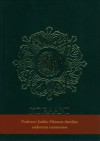948
Followers
168
Following
rameau's ramblings
A reader who’ll try anything once, including bad books in search of good ones. Eclectic as her tastes are, she tends to gravitate to historical romances, realistic contemporaries, and some fantasy novels.
Kuoleman riitit (In Death, #5)
 Earlier I remarked that in the previous book—Kuoleman hurmio or Rapture in Death—Doctor Mira seemed out of character. Well, in this one, it’s Eve Dallas herself that steps out of character. Or that’s how I felt. From the start of the In Death series Eve has always trusted her instincts and her dark, painful past has been a source of compassion that’s allowed her to do her job more effectively than others. Not here. Here, she utterly wrecks a suspect in the interrogation room and others compliment her for it. Sure, they note how hard she is—on the junior constable who originally tries to protest but ends up apologising. And Eve’s not even getting results; the suspect doesn’t confess. I didn’t buy Roberts’ reasoning for Eve’s behaviour and I thought it more likely she acted so abnormally for the exact opposite reasons: Eve might have hoped that Chas was innocent but that’s not why she tore into him. Eve believed and feared Chas was guilty because of their similar pasts that’d mean she had the same “demons” in her. Instead of finding her fears unfounded, her behaviour proved them valid. It’d been more believable had Roberts claimed that a dark spell affected Eve’s psyche.Speaking of spells. I didn’t like how Wicca was portrayed here. Sure the book was written in the mid 90’s when I was a fan of Charmed but the times have changed. I’ve read enough to learn to despise how authors use this and other pagan religions for their plots. Even when they try to be fair and courteous they only end up using Wicca for its sensationalism rather than as an aspect of a character’s life that helps to explain who he or she is. Also, for as long-winded series as this, Roberts isn’t doing much with the long plot. She just keeps throwing Eve’s childhood abuse around and further trivialising it. I was hoping Roarke would continue to examine his own self-doubts after what happened in the previous book, but instead there’s more fade-to-black sex in this book than there’s been in all the other In Death books—so far—combined. Maybe I’m wrong and the issue is addressed later, but the way things are looking now, I’m pretty sure I’ll never find out. I’m actually hoping now that Roarke turns out to be a very adept psychopath serial killer slash mass-murderer who has made his life ambition to fuck up Dallas’ sanity. There’s only one more translated book left, and right now, nothing is enticing me to switch to English to keep reading the series.
Earlier I remarked that in the previous book—Kuoleman hurmio or Rapture in Death—Doctor Mira seemed out of character. Well, in this one, it’s Eve Dallas herself that steps out of character. Or that’s how I felt. From the start of the In Death series Eve has always trusted her instincts and her dark, painful past has been a source of compassion that’s allowed her to do her job more effectively than others. Not here. Here, she utterly wrecks a suspect in the interrogation room and others compliment her for it. Sure, they note how hard she is—on the junior constable who originally tries to protest but ends up apologising. And Eve’s not even getting results; the suspect doesn’t confess. I didn’t buy Roberts’ reasoning for Eve’s behaviour and I thought it more likely she acted so abnormally for the exact opposite reasons: Eve might have hoped that Chas was innocent but that’s not why she tore into him. Eve believed and feared Chas was guilty because of their similar pasts that’d mean she had the same “demons” in her. Instead of finding her fears unfounded, her behaviour proved them valid. It’d been more believable had Roberts claimed that a dark spell affected Eve’s psyche.Speaking of spells. I didn’t like how Wicca was portrayed here. Sure the book was written in the mid 90’s when I was a fan of Charmed but the times have changed. I’ve read enough to learn to despise how authors use this and other pagan religions for their plots. Even when they try to be fair and courteous they only end up using Wicca for its sensationalism rather than as an aspect of a character’s life that helps to explain who he or she is. Also, for as long-winded series as this, Roberts isn’t doing much with the long plot. She just keeps throwing Eve’s childhood abuse around and further trivialising it. I was hoping Roarke would continue to examine his own self-doubts after what happened in the previous book, but instead there’s more fade-to-black sex in this book than there’s been in all the other In Death books—so far—combined. Maybe I’m wrong and the issue is addressed later, but the way things are looking now, I’m pretty sure I’ll never find out. I’m actually hoping now that Roarke turns out to be a very adept psychopath serial killer slash mass-murderer who has made his life ambition to fuck up Dallas’ sanity. There’s only one more translated book left, and right now, nothing is enticing me to switch to English to keep reading the series.




